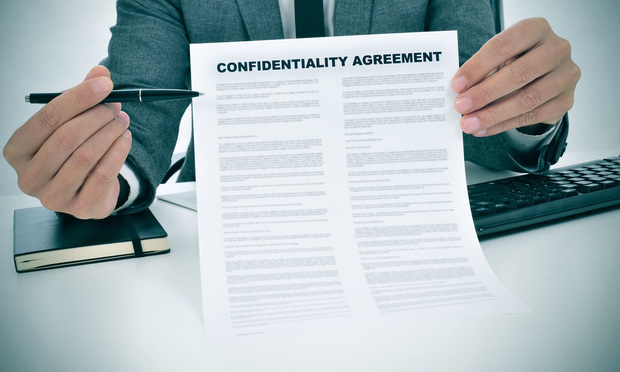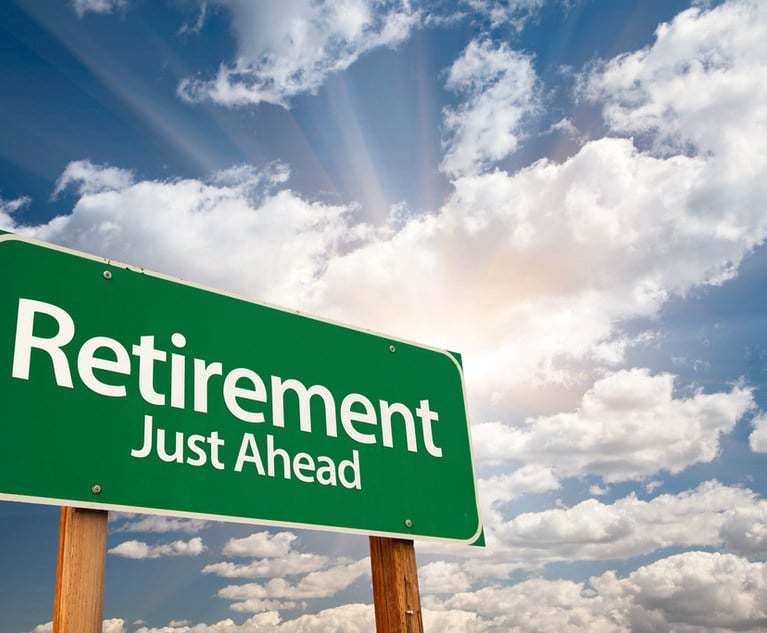
June 24, 2021 | New York Law Journal
Resolving Cannabis Disputes in New YorkThe Marijuana Regulation and Taxation Act, legalizing adult use of cannabis in New York, has provided a framework for the potential multi-billion dollar, highly regulated industry but passage of the bill is only the first step before growers, distributors and retailers can legally sell cannabis to consumers.
By Paul D. Sarkozi
8 minute read

June 23, 2021 | New York Law Journal
The Lasting Impact of COVID-19 on DivorceWhile divorce can naturally be challenging emotionally and financially for high-net-worth couples, the pandemic has added several layers of complexity, and lawyers along with their clients need to be prepared for the ongoing impact.
By Kristen Dalton
6 minute read

June 22, 2021 | New York Law Journal
Realty Law DigestScott E. Mollen, a partner at Herrick, Feinstein, discusses the contracts case "E. Upreal LLC v. Rogers Equities LLC," where discovery was needed to resolve issues, and "GSKP LLC v. Lee" where the landlord failed to show that the tenant's bird feeding constituted a nuisance.
By Scott E. Mollen
16 minute read

June 22, 2021 | New York Law Journal
Help Is On the Way: New York Enacts Pass-Through Entity TaxIn their Real Estate financing column, Ezra Dyckman and Charles Nelson discuss New York's new pass-through entity tax regime which can provide a significant federal tax benefit to businesses owned through pass-through entities, such as real estate and other closely held businesses, however taxpayers need to be aware of several uncertainties and complexities regarding the application of the new law.
By Ezra Dyckman and Charles S. Nelson
6 minute read

June 22, 2021 | New York Law Journal
A Practical Guide to New York's Confidentiality Waiver Requirements for Employment Discrimination Settlement AgreementsWhile the policy impetus behind the confidentiality prohibition—preventing employers from silencing complaints about harassment and discrimination—may be worthy, the reality is that employers will normally not settle without a confidentiality provision.
By Alice K. Jump and Ethan Krasnoo
7 minute read

June 21, 2021 | New York Law Journal
Lawyer Retirement and Future Payouts: Ethical Complexities and Gray AreasFor New York lawyers, "retirement" in the traditional sense of exiting the work force may not be the only option. New York has an intricate maze of rules on retirement requiring careful review and understanding.
By Devika Kewalramani and Rachel S. Kwon
8 minute read

June 16, 2021 | New York Law Journal
Yev Markov Joins Mayer Brown from Willkie Farr & GallagherAnd other announcements of recent hirings and promotions of New York attorneys.
By Patricia Kane
3 minute read

June 15, 2021 | New York Law Journal
Realty Law DigestScott E. Mollen, a partner at Herrick, Feinstein, discusses "1877 Webster Ave. Inc. v. Tremont Center," where the lack of a force majeure provision did not bar impossibility and frustration of purpose claims, and "Matter of Academy Sq. Apts. Hous. Dev. Fund Co. v. Assessor, City of Utica," where a panel affirmed an order granting the owner tax exempt status on parcels under RPTL §420-a.
By Scott E. Mollen
14 minute read

June 15, 2021 | New York Law Journal
Scope of Deception Prohibition at Issue in Legal Publishing CaseIn their New York Court of Appeals Roundup, Linton Mann III and William T. Russell Jr. discuss Himmelstein v. Matthew Bender & Co., where the court recently considered the scope of the General Business Law's prohibition of deceptive acts or practices in a case against legal publisher Matthew Bender & Company.
By Linton Mann III and William T. Russell Jr.
8 minute read

June 15, 2021 | New York Law Journal
Claims Against Architects and EngineersIn his Construction Law column, Kenneth Block begins a two-part series on construction litigation for owners with a discussion of the fundamentals of claims against construction professionals and contractors, and how to achieve a favorable outcome if litigation becomes necessary. This first part deals with claims against architects and engineers.
By Kenneth M. Block
6 minute read
Trending Stories
- 1CFPB Labor Union Files Twin Lawsuits Seeking to Prevent Agency's Closure
- 2Crypto Crime Down, Hacks Up: Lawyers Warned of 2025 Security Shake-Up
- 3Atlanta Calling: National Law Firms Flock to a ‘Hotbed for Talented Lawyers’
- 4Privacy Suit Targets Education Department Over Disclosure of Student Financial Data to DOGE
- 5Colwell Law Group Founder Has Died in Skiing Accident



